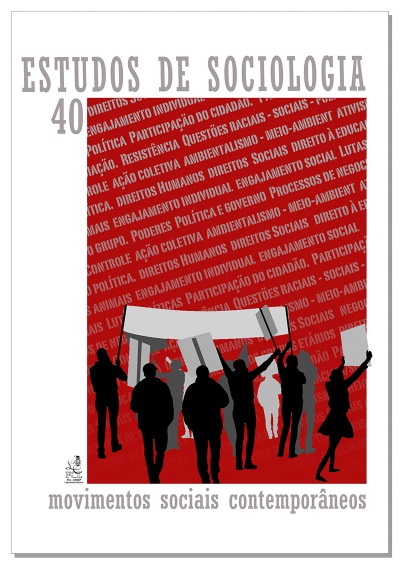Cinema, história e nação: Humberto Mauro e O Descobrimento do Brasil
Palavras-chave:
Humberto Mauro, Sociologia do cinema, Sociologia da arte, Cinema e história, Cinema e nação,Resumo
Humberto Mauro é considerado um dos pioneiros do cinema brasileiro. O presente artigo apresenta uma proposta de leitura de seu filme O descobrimento do Brasil (1937) a partir de elementos conceituais da Sociologia da Arte e do Cinema. O filme, pertencente ao acervo do antigo Instituto Nacional de Cinema Educativo, apresenta uma imagem para o descobrimento do país, propondo-se a ser uma ilustração da Carta de Pero Vaz de Caminha. Para isso ele trava um diálogo com a tradição visual brasileira, e realiza o que podemos chamar de uma pintura histórica em movimento. Nessa perspectiva, o filme contribui para forjar elementos do passado na construção de valores da época de sua produção, criando ou recriando mitos de uma nacionalidade. Com isso ele se torna parte de um projeto maior de construção da nação brasileira, no qual os objetos de cultura eram considerados um dos caminhos para sua efetivação.Downloads
Não há dados estatísticos.
Downloads
Publicado
30/06/2016
Como Citar
TREVISAN, A. R. Cinema, história e nação: Humberto Mauro e O Descobrimento do Brasil. Estudos de Sociologia, Araraquara, v. 21, n. 40, 2016. Disponível em: https://periodicos.fclar.unesp.br/estudos/article/view/7477. Acesso em: 12 jan. 2026.
Edição
Seção
Varia
Licença

À revista Estudos de Sociologia ficam reservados os direitos autorais pertinentes a todos os artigos nela publicados.
Os artigos publicados e as referências citadas na revista Estudos de Sociologia são de inteira responsabilidade de seus autores.
A Estudos de Socilogia utiliza a licença https://creativecommons.org/licenses/by/4.0/ (CC BY), que permite o compartilhamento do artigo com o reconhecimento da autoria.



